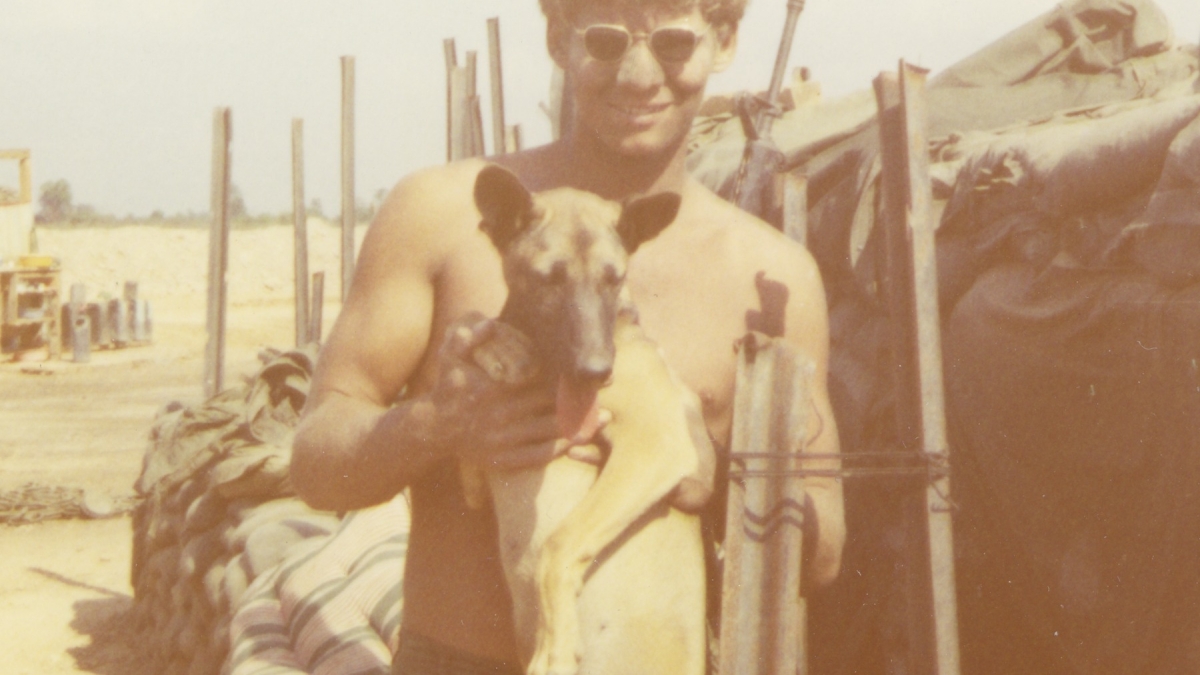Veterans read, share stories about what it means to go to war

Dan Shilling's love of literature began in Vietnam.
"When you're in war, you start asking yourself pretty large, philosophical questions," says Shilling, who was drafted at 19 as a U.S. Army sergeant in charge of artillery.
Each day, Shilling recalls, helicopters would make a brief appearance over the fire base where he and his fellow soldiers had set up camp, dug fox holes and guarded the perimeter of a space about the size of a football field. Along with food, the helicopters would drop a grocery bag full of paperback books.
Shilling, who says he was never much of a student, began reading them.
"I read a lot of detective novels and mysteries, but then occasionally there would be a book that kind of touched me," he says. "For the first time, I realized this is why we read, because there is something happening that I can relate to."
American novelist John Updike and German writer Günter Grass were among some of the writers he discovered while there, and when it came time to return home, he knew exactly what he wanted to do with his G.I. Bill – study literature.
Now a retired professor from Arizona State University's Department of English, where he also received his doctorate, Shilling has served as the director of the Arizona Humanities Council, and continues to teach, write and research as a visiting scholar and professor with ASU's Institute for Humanities Research.
His love for story and his status as a veteran are informing his most current role – facilitating a book club for men who are veterans.
"There's a need for veterans to talk about their experiences, and the best way to start that conversation is with other veterans," Shilling says. "We're using literature as a way into that conversation."
The group meets every other Wednesday through Dec. 10 for a total of five sessions, and includes a mix of veterans of all eras and backgrounds – about 15 men total. The readings are short and theirs to keep, and a dinner is included. Everything is free, including the space that was offered to them at Burton Barr Central Library in downtown Phoenix.
Sponsored by Arizona Humanities – through a grant from the National Endowment for the Humanities that was distributed by the Maine Humanities Council – and delivered in partnership with the ASU Pat Tillman Veterans Center, the book club will include an all women's edition in the spring, as well as a co-ed group.
The idea for a book club came out of a national initiative as a way to get people talking about the experience of war, says Nancy Dallett, the lead organizer of the event with ASU's Office for Veteran and Military Academic Engagement. As a nation further divorced from military experience – just 1 percent of the U.S. population serves in the military – ASU's Office for Veteran and Military Academic Engagement works to provide opportunities for engagement and dialogue where there would otherwise be none.
"We're really about trying to bridge that gap," says Dallett, who adds that the book club is a step in that direction.
Creating a safe space for veterans to talk about their experiences and also address issues of communication, depression and feelings of isolation, the club is neither therapy nor a literature class, Shilling says, but "a place to share their stories."
"The readings are a springboard for discussion," he says. "A high number of vets commit suicide, and we didn't want to run away from that statistic, so we're confronting it in J.D. Salinger's 'A Perfect Day for Banana Fish.'"
The book club meets from 6:30 to 8 p.m., every other Wednesday through Dec. 10, at the Burton Barr Central Library in downtown Phoenix.
For general information or details on how to register for the upcoming women veterans and co-ed veterans book clubs, email or call Nancy Dallett at 480-965-9331.